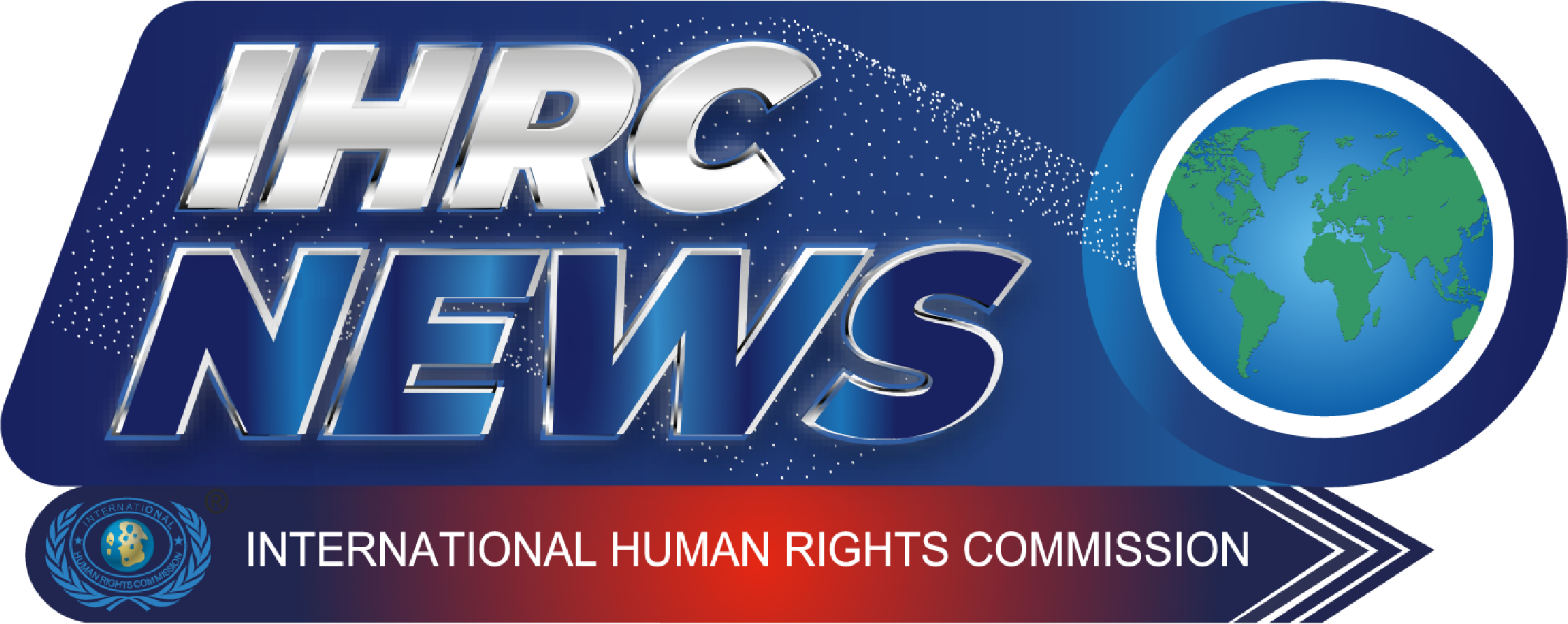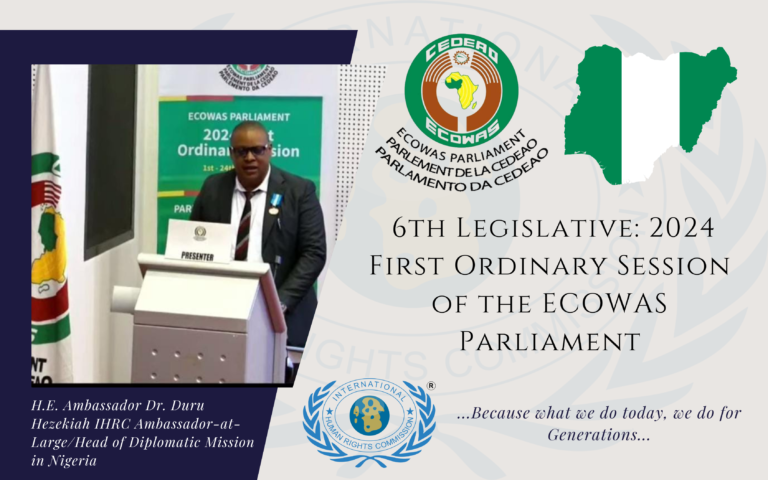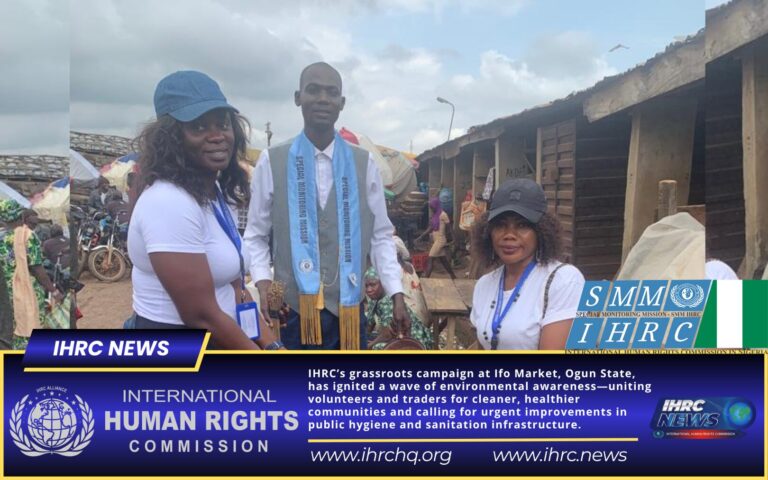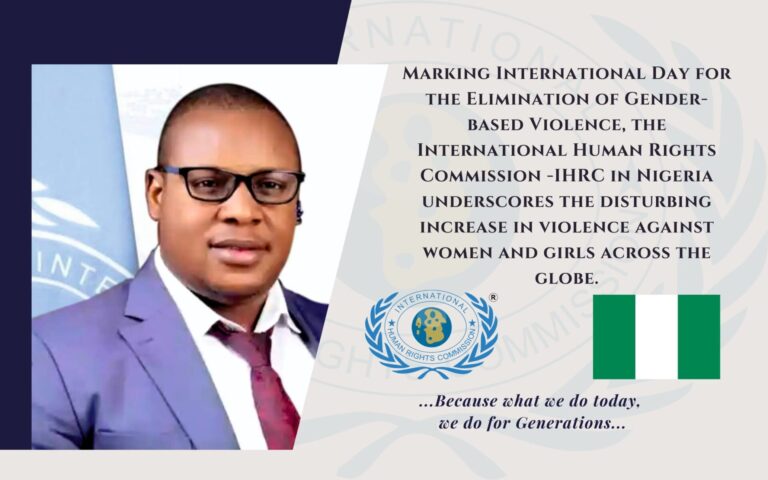BEING SPEECH BY IHRC NIGERIA HEAD OF DIPLOMATIC MISSION, H.E. AMBASSADOR DR. DURU HEZEKIAH, IN COMMEMORATION OF THE 2023 INTERNATIONAL HUMAN RIGHTS DAY, AT NOVARE SHOPRITE CENTRAL ABUJA.
FRIDAY 8TH DECEMBER 2023.
Protocols.
On behalf of the Transnational Intergovernmental Organization, International Human Rights Commission-IHRC; an organization working to promote human rights for everyone, everywhere in the world without discrimination, whether of colour, faith, political affiliation, origin, wealth, age, or gender; it is my honour to welcome you all to this workshop marking International Human Rights Day 2023 and in commemoration of the 75th anniversary of the Universal Declaration of Human Rights (UDHR).
The theme for this year’s celebration, “Consolidating and Sustaining Human Rights Culture into the Future”, calls for an intergenerational commitment and effort to keep the flames of human rights and dignity burning for decades to come. On this note, we intentionally considered celebrating this event with Secondary school students who are the future world rights bearers and the sustainable development generation, to inculcate in them the knowledge of human rights and to awaken national authorities responsible for the school system to integrate human rights education (HRE) in primary and secondary education. In particular, it will help them to sustain the culture of human rights in future generations.
It is argued that the international community has on many occasions—most recently, with the adoption of the United Nations Declaration on Human Rights Education and Training on 19 December 2011, expressed its consensus on the importance of human rights education as a process that builds knowledge, skills, and attitudes prompting behavior that upholds human rights.





In this sense, human rights education at secondary school levels helps make informed knowledge about human rights where students can boldly contribute to the protection of human rights and support communities and societies where the human rights of all are valued and respected.
This is true because the international community has increasingly expressed consensus on the crucial contribution of human rights education (HRE) to the realization of human rights as well as to the long-term prevention of human rights abuses and violent conflicts.
Interestingly, provisions on HRE, and in particular within the school system, have been incorporated into many international instruments, including the Universal Declaration on Human Rights, the International Covenant on Economic, Social and Cultural Rights, the Convention on the Rights of the Child, the Convention on the Elimination of All Forms of Discrimination Against Women, the UNESCO Convention Against Discrimination in Education, and the Vienna Declaration and Programme of Action.
Therefore in the school system, HRE is an important component of the right to education, as it enables the education system to fulfill its fundamental aims of promoting the full development of the human personality and appreciation of human dignity, strengthening respect for human rights and of delivering a quality education for all.
Similarly, in 2004, the international community launched the World Programme for Human Rights Education (2005–ongoing) to advance the implementation of HRE programs in all sectors and as a follow-up to the United Nations Decade for Human Rights Education (1995–2004), and decided to focus its first phase (2005–2009) on the integration of HRE in the primary and secondary school systems.
In my final submission, ladies and gentlemen, I wish to implore the national authorities responsible for Nigeria school system to integrate HRE in our schools as it contributes to improving the effectiveness of the education system as a whole, which in turn contributes to a country’s economic, social and political development and provide:
1. Improved quality of learning achievements by promoting child-centred and participatory teaching and learning practices and processes, as well as a new role for the teaching profession;
2. Increased access to and participation in schooling by creating a human rights-based learning environment that is inclusive and welcoming and fosters universal values, equal opportunities, respect for diversity, and non-discrimination;
3. A contribution to social cohesion and conflict prevention by supporting the social and emotional development of the child and by introducing democratic citizenship and values.
With this achieved, we may hope that they, in turn, would play their role in keeping the light of justice, freedom, and peace shining for future generations.
Once again, I thank you all for coming, and may we have a fruitful session of discussions and enlightenment at this program.
H.E. Ambassador (Dr.) Duru Hezekiah
Ambassador-at-Large/Head of Diplomatic Mission, IHRC Nigeria
Reported by the Department of Media, IHRC Nigeria.







